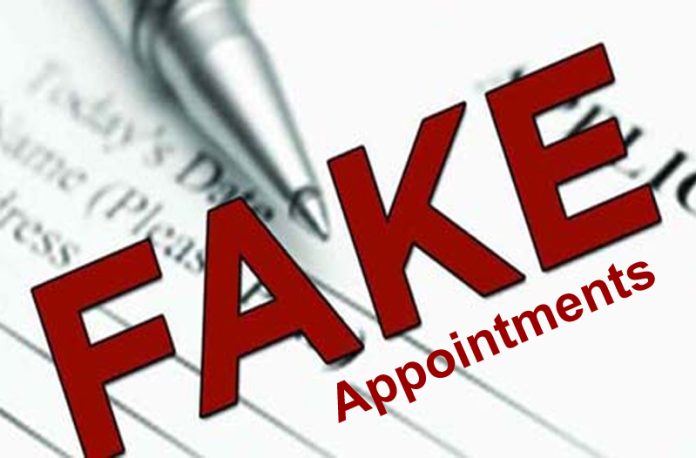The submission of fake or forged documents by selected candidates for Government employment is a serious issue that has plagued public recruitment processes in Jammu and Kashmir. The recent directive by the Jammu and Kashmir Government, instructing various offices to initiate criminal proceedings against offenders, marks a decisive step towards curbing this menace. This initiative not only demands the cancellation of such appointments but also emphasises holding the wrongdoers accountable through legal channels. The public sector jobs are highly coveted, offering stability, security, and benefits. However, the unscrupulous act of securing employment through fraudulent means undermines the integrity of the recruitment process, erodes public trust in governance, and deprives deserving candidates of their rightful opportunities. The submission of fake or forged documents, whether related to educational qualifications, age, or category certificates, violates the principles of fairness and transparency.
By mandating the initiation of criminal proceedings under relevant legal provisions, the Government sends a clear message that fraudulent actions will not be tolerated. Moreover, the decision to cancel appointments ab initio-essentially declaring them null from the outset-ensures that those who secure jobs through dishonest means are promptly removed from the system. This move serves as a significant deterrent for future offenders. This digital age makes document forgery more sophisticated and harder to detect. However, knowing that their deceitful acts will result not only in the loss of employment but also in legal consequences will make potential fraudsters think twice before attempting such actions. Furthermore, the circular explicitly states that the salary of the appointees will not be drawn until the verification process is complete. This measure protects the Government exchequer from financial losses by ensuring that those who submit fake documents do not benefit monetarily from their fraudulent actions. By enforcing this financial safeguard, the authorities demonstrate their commitment to eliminating all possible loopholes that might allow individuals to exploit the system.
The issue is accountability. Government jobs are positions of trust and responsibility. Public servants are expected to uphold the values of integrity, service, and commitment to the welfare of citizens. When individuals resort to dishonesty to secure these jobs, they compromise the very essence of public service. It is essential to recognise that this is not just a matter of individual ethics but also a systemic issue. When selected candidates manage to bypass the checks and balances of the recruitment process by submitting fake documents, it raises concerns about the effectiveness of the current verification mechanisms. While the Government’s decision to initiate criminal proceedings is a welcome move, it should be accompanied by a comprehensive overhaul of the recruitment and verification process.
One of the most critical steps towards eradicating document fraud in Government recruitment is to strengthen the scrutiny of documents at every stage of the selection process. While the Government already follows a protocol of verifying qualifications, birth certificates, and category certificates, the verification system must be fortified to make it more foolproof and less prone to manipulation. Technological advancements can play a pivotal role in this regard. The implementation of digital verification processes and integration with national databases can significantly reduce the risk of forgery. Centralised databases for educational qualifications and certificates can allow for real-time verification, reducing reliance on physical documentation that is more susceptible to forgery. This can make it easier to flag discrepancies during the document verification phase itself, rather than allowing them to slip through the cracks until much later in the process.
However, this must be viewed as the beginning of a more comprehensive effort to reform the system. Strengthening verification processes, leveraging technology, fostering accountability, and raising public awareness will collectively contribute to creating a transparent and fair recruitment process. It is only through such multifaceted approaches that the scourge of document fraud can be effectively eliminated, ensuring that public employment remains a beacon of integrity and service.
Trending Now
E-Paper


